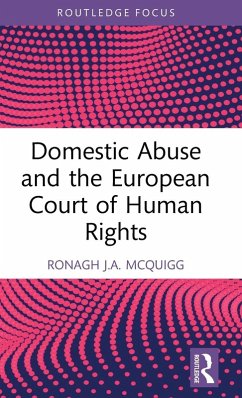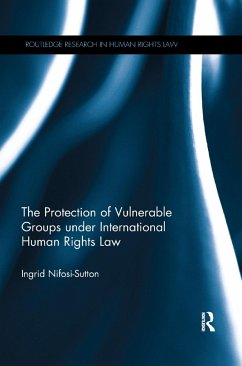
The European Convention on Human Rights and the COVID-19 Pandemic
Versandkostenfrei!
Versandfertig in 6-10 Tagen
59,99 €
inkl. MwSt.

PAYBACK Punkte
30 °P sammeln!
This book provides detailed analysis of the applicability of the provisions of the European Convention on Human Rights to issues raised by the COVID-19 pandemic. It encompasses in-depth discussion of the emerging jurisprudence of the European Court of Human Rights relating to issues arising from the pandemic. To date, a substantial number of complaints concerning such issues have been made to the Court. Human rights claims in the context of the pandemic fall into two broad categories: those based on arguments that states did not put in place sufficient measures to protect individuals from the ...
This book provides detailed analysis of the applicability of the provisions of the European Convention on Human Rights to issues raised by the COVID-19 pandemic. It encompasses in-depth discussion of the emerging jurisprudence of the European Court of Human Rights relating to issues arising from the pandemic. To date, a substantial number of complaints concerning such issues have been made to the Court. Human rights claims in the context of the pandemic fall into two broad categories: those based on arguments that states did not put in place sufficient measures to protect individuals from the virus and those entailing arguments that the measures put in place themselves involved breaches of rights. The essential question with which the European Court of Human Rights must grapple is how to adjudicate on the correct balance which should have been struck. The book argues that the Court should be cautious of finding breaches of the European Convention on Human Rights in cases involving public restrictions which were applied for the purpose of protecting life and health in response to a global pandemic. If the concept of a human rights violation is defined too broadly, it dilutes the seriousness of such a breach. In particular, it is argued that to preserve the legitimacy of human rights law, the Court must be cautious of applying an overly narrow margin of appreciation in such cases. The work will be of interest to academics, researchers and policymakers working in the area of human rights.














